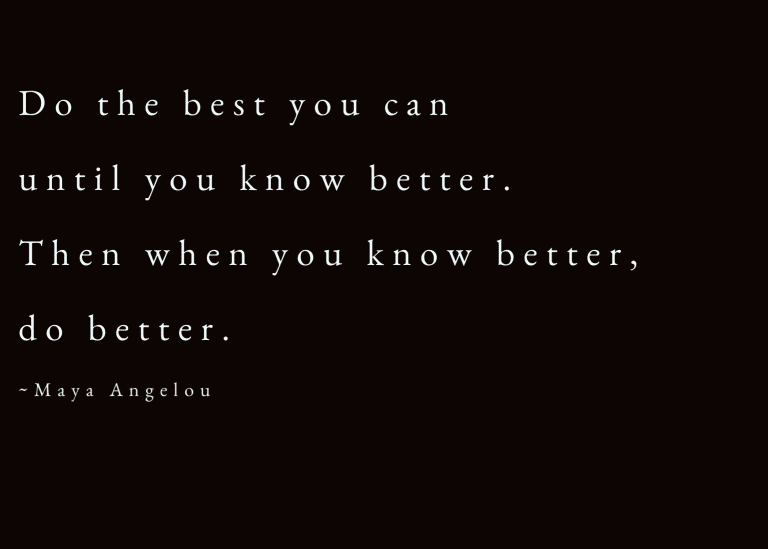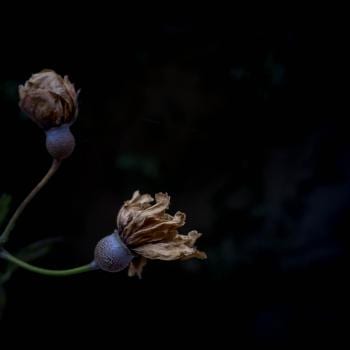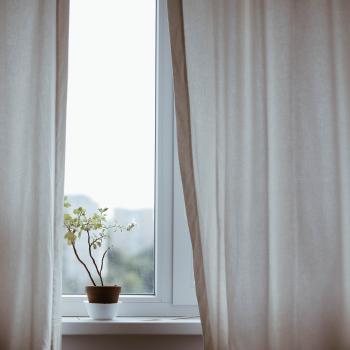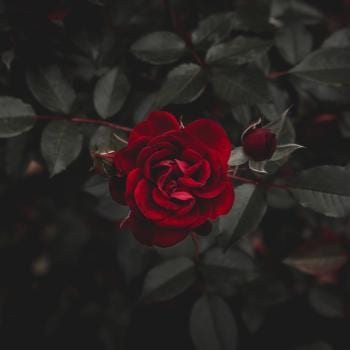
Part 1: Do the Best You Can
When my daughter was three, I bought her an Indian costume from Old Navy. That year, she toddled around on her quest to fill her plastic pumpkin pail with candy in a thick brown fringed dress complete with headband and felt feathers. I thought she was adorable. I had never heard the term cultural appropriation. People around me didn’t use terms like Indigenous or Native. Growing up, if people wanted clarification about Indians from India or Indians that were native to America, they’d ask “dots or feathers?”
A couple years later, I made her a Pilgrim costume for a friend’s Thanksgiving harvest party. And yes, you guessed it, the kids dressed up in culturally appropriated Indian costumes and Pilgrim dresses. They made paper turkeys from their tiny outlined hands and colored in cornucopias writing down what they were thankful for. All our blessings.
I knew the very basics about Indigenous people and the land America stole, the wrongness of it. But it was a long time ago. And after all, we were celebrating Indians and Pilgrims all getting along and making a better way forward.
I cringe remembering this.
I grew up with a predictably standard education attending public school in the 80’s and 90’s in Albuquerque, New Mexico. My American history textbooks were whitewashed and anemic so instead I learned about racism from my white father. He taught me it was evil, in contrast to his upbringing where racism was as natural as a Carolinian drawl and black eyed peas with salty cured ham hocks and collard greens.
His roots were soaked in the kind of white supremacy few deny. Glaring hate fertilized by poverty and lack of education, deep south segregation, and his mother telling him not to come home if he ever got caught playing with a “n-word kid” again. His kin found comfort and pride in the promise that no matter how poor and wrong sides of the tracks his bloodlines were, at least they weren’t like those blacks.
He was a dirt poor South Carolina boy who for some reason hate never came easy to. He choked on it more than he swallowed it whole.
Instead, he taught me about the evils of a hating heart. Of the wicked things men did with those unredeemed organs, beating, lynching, or enslaving Black bodies. But racism was individualized and demonized in such a way that only the most obvious offenders could be considered complicit.
In this way, I didn’t believe racism could live unrecognized and unrepented for in our home, in our neighborhood, in our churches, and schools.
As a girl, I believed in the courage and cost of the Civil Rights Movement. Even though my dad had little more than a 7th grade education, it was because of him that I knew of Emmet Till, Brown v. Board of Education, and the Civil Rights Act of 1964. I esteemed the courage of Ruby Sales and Rosa Parks. I was inspired by Dr. King’s Letter to a Birmingham Jail and my soul summoned genuine tears when I first saw the faces of Addie Mae Collins, Cynthia Wesley, Carole Robertson, and Carol Denise McNair. They weren’t much older than me when they were murdered in their Sunday best. In fourth grade, I read To Kill A Mockingbird and that dog eared school copy immediately became my favorite book.
I was an idealistic child, in many ways, but I believed the heroes of the Civil Rights Movement’s passion for justice and equality, their sacrifices, their literal blood, sweat, and tears, had fought the good fight and won.
As a girl, I was never taught racism was passed down through generations and inherited in insidious forms. It would be rebirthed in systems of power coupled with prejudice through things like redlining, mass incarceration, gerrymandering and voter suppression, the war on drugs, police brutality and militarization, income inequality, school to prison pipeline, disparities in health care and much more.
But because I was ignorant, I believed racism was black and white and mostly over. If racism occurred, it was because of a few bad apples. The kind of people who called my brother and I mongrels when we were visiting the South. I believed white supremacy was good ol’ boys in white hoods, ignorant individuals filled with hate and draped in confederate flags. It was the lynch mobs and all white juries of the past. It was slavery and Jim Crow segregation; it was unjust laws no longer on the books.
African Americans had fought with brilliance and determination. I only needed to look at my Black friends Charlock and Olinka, who lived in a house much nicer than ours. Their father had a good job, they drove a Land Cruiser and wore name brands like Guess, Z. Cavaricci, and Gitano. The idea of white privilege was laughable when faced with my dad’s 7th grade education, the run-down AMC Pacer we had to roll down the street and pop the clutch to start, or my thrift store clothes. I didn’t believe the world gave my dad any advantages, white skin or not.
My education was incomplete. The anecdotal evidence of our lives in comparison to my black friends was proof enough for me that we were post race. I’d never heard anything contrary.
And yet, I’d been on the receiving end of racism myself.
As a girl, I learned about racism from my half Japanese-half Korean mother. She taught me about the Japanese Americans interned in their own country. Roots pulled from their homes and gardens and tossed aside wilting and strangled in Manzanar and Tule Lake by their own government. To white Americans they were suspicious foreigners whose allegiances could never be assured because of their strange looks and shifty eyes, traces of a mother tongue, or chopsticks tapping against the side of their rice bowls like some sort of treacherous morse code.
I learned by the slant of our eyes or the curves of our faces we are plagued by otherness.
Still, because I believed racism was black and white, I had no language for white supremacy that would leave me longing for wider eyelids, blonde hair, or blue eyes. There were no characters who looked like me in the books I read, the shows I watched, or the ads I saw, but I’d never heard anyone talk about how much representation matters.
I didn’t know I was aspiring to whiteness trying to assimilate. I just didn’t want my classmates to tease me anymore by pulling their eyes into slits and chanting ching chong China girl. As a teenager, I didn’t want to be called exotic or have locker room talk around yellow fever. I pretended not to hear the boys laugh, “Once you go Asian, you never go caucasian” as I walked by. I just wanted to fit in.
Instead of being taught to embrace my Asian American identity, colorblindness was championed. Martin Luther King Jr said “I have a dream that my four little children will one day live in a nation where they will not be judged by the color of their skin but by the content of their character.” I was taught this meant we shouldn’t see color and if we happened to notice more melanin, we should ignore it, or else it made us racist. I didn’t realize that when we don’t see color, it erases me.
At church, we were encouraged to confess our sins. No one I knew would have confessed to racism being a possibility. After asking God into my heart repeatedly, (in case it didn’t take) I spent years in youth group learning about my personal relationship with Jesus. Patriotism was akin to holiness and the Constitution held equal footing with the Bible. I was taught America was a Christian nation and exceptional for all we had accomplished with our godly principles. I was taught chattel slavery and the treatment of Indigenous people was a blight on an otherwise fruitful tree, it had no bearing on the present.
My youth group presented me with a white middle-class Jesus with flowing golden-brown locks and pearly white teeth who was well pleased with my faith as long as I didn’t smoke, cuss, or drink, wasn’t gay, and didn’t have premarital sex or an abortion. We were supposed to have quiet times and go on short term missions trips and fight for our right to pray in school. Demonstrable, performative morality was the key. Which left us all ill equipped to interrogate the sins of our hearts like pride, greed, lust, racism, covetousness, and idolatry. We couldn’t be racist if we had an African American friend. We couldn’t be racist if the mission’s trip went to help build an orphanage in Mexico. We couldn’t be racist if we sent money to starving children in Ethiopia. I’d never heard of anyone having a white savior complex.
Coming of age in a world where there was no language for white supremacy in the suburbs, far from white hooded men and burning crosses, many of us were left without the framework for how insidious white supremacy truly is and how it systematically presents a false narrative about what is normal, what is valuable, and what is true. I had no language for the microaggressions I endured as an multiracial child. I had no language for the systems that oppress people of color since we weren’t even supposed to see it in the first place.
Part 2: Until You Know Better
Yesterday, my now 15-year-old daughter let me tweet a picture she drew in support of ending police brutality while declaring Black lives matter.
My 15 yr old daughter expresses herself through her art. While working on this, she told me she had to write the names of those killed by police brutality smaller because she was running out of room. She’s not even sure she got them all and already there are more. Think on that. pic.twitter.com/NPVMO1Bl07
— Alia Joy (@AliaJoyH) June 13, 2020
Latasha Morrison and Lisa Sharon Harper, both indomitable Black women leaders, author, and speakers, whom I’ve personally followed and learned from for years, asked if she’d be willing to sell them a print. I asked my daughter what she thought. She answered, “I don’t want to profit off Black pain.” Instead, she asked that I offer them a free PDF.
As her mom, I am beyond proud of her art and of the woman she is becoming.
Several people complimented me on raising her and leading my kids well. These days, she understands why cultural appropriation is harmful and why I never should have dressed her up in those costumes. She knows the ways in which Indigenous people suffer and are erased, even now. She makes art that empathizes and speaks against injustice. She knows that our freedom is bound up in one anothers. She knows that Christ calls us to love our neighbors and to seek justice because a holy God demands it. She understands flourishing begins in repentance. She also knows it will take more than a confession of one’s individual sin of racism to dismantle systems of oppression intent on stripping our Black brothers and sisters of their lives, livelihoods, and liberty in service to both coddling and fortifying whiteness.
She understands that partly because I’ve apologized to her for not knowing better and therefore not doing better as her mom. I don’t hide my repentance from my children. I want them to see how abundant grace is when you turn away from sin. I don’t minimize my errors, I try to both learn and teach from them so my kids will too. And so I value history.
Through circumstances much too long to share here, I started blogging about a decade ago. I am a writer in the same way my daughter is an artist. I am wooed by words, she is wooed by images. We both tell stories.
Although I’ve always scribbled away privately in my journal, when I started writing and sharing my work publicly, something changed in me. Writing my story gave me language for things long misunderstood or buried in my life. It allowed me to sit with the pain of being othered in my country and my church. It helped me revisit my childhood with older wiser eyes having both compassion for and insight into the things that formed and shaped my identity and the inherited identities of my children. But most of all, in writing my story, God began to show me how interconnected the body of Christ is. Jesus calls us not only to dependence on him but to dependence on each other.
Yet, “personal responsibility” in tandem with its churchy doppelganger “personal relationship with Christ,” is the golden calf responsible for one’s affluence, success, health, safety, and productivity. At the same time, the perceived lack thereof is often used against people of color as a scapegoat for why they were murdered, poor, sick, dying, addicted, incarcerated, homeless, uneducated, raped, or unemployed. Why their life doesn’t matter.
The autonomous bootstrap mentality of my youth offered a tidy narrative of why some are blessed and others are oppressed. If racism is only a personalized sin issue, then we’re not responsible to dismantle systems that perpetuate oppression and injustice.
It’s more than a few bad apples. When the bible refers to bad fruit, it always stems from a bad tree. The roots of white supremacy were watered with the blood of Black and Indigenous people as America was founded. Bitter fruit abounds and it’s poisoned us all.
In my book Glorious Weakness, I write, “There are countless ways we declare the image of God as not fully present in other people. And if we don’t see the image of God in others, we’ll fail to see God. Loving the heart of God will always call you toward uncomfortable love, there isn’t any other kind.”
For years, when I’ve brought up racism, white people in the church have accused me of being divisive because they’re uncomfortable with where the divide falls. They cry reverse racism or say social justice is a liberal agenda. They say I’m playing the race card, I’m race baiting, I’m making it about skin when it should be about sin. They say they shouldn’t have to feel guilty for being white. They cry. Oh boy, do they cry. They’re hurt. They’re offended. I’ve gotten used to these reactions because even the thing they say demonstrate they don’t know better. But it’s heartbreaking that even with the blood of our Black brothers and sisters crying out for justice, they also don’t want to. Because if allowed, the truth will disrupt your life. It will cost you. This kind of truth is intrusive but it is also redemptive. And when white people embrace it, I see tender and teachable hearts, open to the Holy Spirit. People doing their best, yet humble enough to realize, if they knew more, they could do better. And then choosing to.
Part 3: Then Do Better
Interdependence is at the heart of God’s vision for us. I stayed tender and open as God called me to repentance. I found Black leaders like Latasha Morrison, Lisa Sharon Harper, and countless others. I bought their books and listened to their words. I confessed my ignorance and my assumptions. I asked hard questions of myself. I prayed for wisdom and clarity. I felt uncomfortable. I made mistakes. I said the wrong things. I asked for forgiveness without making excuses. I showed up and started again. And I invited my children to bear witness to my humble and often clumsy walk towards understanding racism in America, including my complicity. Nearly a decade has gone by and still I am learning.
I am not a theologian, I am not an academic or a scholar, I am not an activist in the ways that title might assume. I just care.We are not just part of a body for our own good, we are part of a body for the good of the whole. We keep fervent in love by standing in solidarity with our black brothers and sisters, and saying “where you go I will go. And where you stay I will stay.” Black lives matter.
I am a storyteller sharing my journey, intentionally bringing up topics and terminology that might be as new to you as they were to me. I’m not going to explain them here. If you don’t understand them, if you’re skeptical, heck, even if you’re hostile and believe you’re already doing your best, I implore you to do the work to make sure. Because what if, like me, you’re wrong? What if your truth is not only incomplete but your faith is as well?
The body of Christ is broken and battered, our black brothers and sisters are literally dying and unlike the good Samaritan, many in the white Evangelical church have crossed to the other side bypassing pain they don’t themselves feel and therefore dismiss, on their way to practice their performative morality, cloaked in bloated patriotism, shielded by supremacy, devoid of love.
Performative morality is full of dead man’s bones, a substitution for the abiding life of being known by Christ and called beloved. Borrowing a phrase from Dr. King, we are called to live in “beloved community” loving our neighbor as ourselves. Bearing good fruit.











